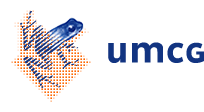Use of TransplantLines Biobank Samples for Improvement of Patient Care
In the Netherlands, each year approximately 1800 patients, of which more than 50% is less than 50 years of age, develop a degree of kidney failure of which they would die if they would not be treated by transplantation or dialysis. Transplantation is the treatment of choice for these patients, because it results in a much better quality of life and longer survival, at much lower costs than dialysis, with respective costs of treatment of approximately € 20.000 per year beyond the first year after transplantation and approximately € 120.000 per year for dialysis. Despite this, there is much room for improvement of quality of life and survival after successful transplantation, and patient continuously perceive a big threat from rejection of the transplanted kidney. This rejection is prevented by chronic use of immunosuppressive medication, which has important side effects, including loss of muscle mass and bone mass, which puts patients at risk from development of disability, and increased susceptibility for a severe course of infectious diseases. Current immunosuppressive treatment is still to a large extent “one size fits all”. The TransplantLines Biobank and Cohort Study has been set up to allow for such improvements. The current project makes use of samples stored in the biobank for exploration of new possibilities that potentially allow for personalization of care.
The project findings have been published in high-ranking, international, peer-reviewed journals and are actively reaching out to implement application of assessment of cystatin C in routine clinical care for kidney transplant recipients. In our hospital cystatin C can now be ordered in routine clinical care and we are discussing with representatives of our clinical chemistry laboratory to also provide an estimated glomerular filtration rate (eGFR) based on cystatin C in the laboratory reports in parallel to the already existing reporting on eGFR based on creatinine in our hospital.


